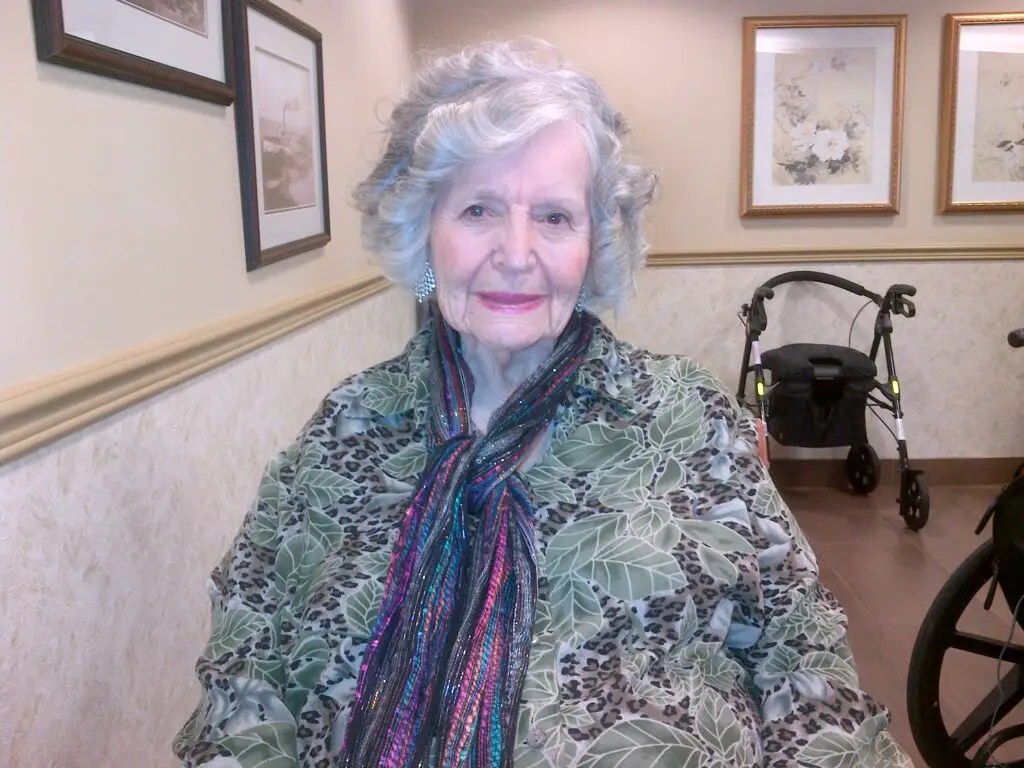
When my Mother died in long-term care it was the first time for her – and for me. It could have been easier for both of us had we not been living in and dealing with a death-denying culture. There were no preparatory talks, heads up, or conversations with the doctor. No one took me aside to confide the end was near. I was blindsided. One might assume that in an institution of long-term care, basically a last stop, staff would not be in a death-denying state. Surely, there could have been a reaching out to make the impending reality easier to accept. Healthcare workers in long-term care may be familiar with people dying. But it’s not as though you experience the death of a parent more than once. Is dying in a death-denying culture in long-term care an anomaly, or is it common? Or is LTC an uncaring culture? You decide.
I Was Confronted With the Gravity of Her Situation by Happenstance
Months earlier, she had been diagnosed with a condition that would have required surgery and other medical interventions. As her family custodian, I made the wrenching decision of not putting her through surgeries and after treatments. She was age 95 with advanced dementia. Before I reached that conclusion, I had asked her doctor how it would all “play out.” He could not give me an answer but promised if my Mother were in any pain, they “would be all over it.” That did not happen.
Outrageously, Palliative Care Consisted of Tylenol.
Several times when I visited her for lunch, I could see her steeling herself against some unknown torment. I then asked the doctor about stronger pain medications. I requested he converse with my brother, who was a dentist and was more informed about pharmaceuticals. The recommendation was hydromorphone. A regime was begun on a Tuesday without further explanation or consultation with me. My mother was dead on Thursday.
When I entered her room that fateful day, her two private caregivers were in attendance, one weeping and the other angry. They protested she was being given too much medication too frequently. My mother had been taken off food and water for 2 days. As I approached her bed, a tear ran out of her dehydrated body and down her cheek. She must have known, even through her dementia, that she was leaving this life she had so loved.
I fled the room, ran to the nursing station, and called the doctor. He never came to the phone and never, ever returned my call.
That was followed by someone at the nursing station asking me, now in complete shock, if I had made final arrangements.
20 minutes later, my mother died. I was not there at her bedside but on the road home to make the recommended final arrangements. I got the call on my cell, pulled over, and sobbed.

Zero Compassion
Could there not have been a more compassionate approach to my Mother’s impending death other than avoidance? Aside from the PSWs who approached me as I was clearing out my Mother’s room, no doctor or nurse took me aside to explain what had transpired. Or why? I had to ask as I removed all her belongings and vacated her room within the 24-hour deadline.
Are we a death-avoidance, death-denying culture? Even in long-term care? And how does that benefit anyone?
During Covid 19, we often hear of being unable to say goodbye to a hospitalized family member dying alone. I myself never knew a reality more painful than having to face the final moments of a loved one.
Is the West a Conflicted Death-Denying/Death-Defying Culture?
People go out of their way to beat back the hands of time using cosmetic surgery in order to feel and look younger. Others make use of human growth hormone or exercise, sometimes extreme, in an attempt to negate one’s birth date.
Then there are the death-defying individuals: the brave and daredevil souls engaging in death-defying sports like rock climbing, or scaling Mt Everest despite the hazards. They are not afraid, but instead, the immortal walking among us. Others skydive from airplanes in order to get a rush, thus giving the finger to their own mortality.
There are aggressive medical procedures and interventions in Western Society, which, when they do not deliver salvation from death, are seen as failures.
In long-term care facilities, you see the same family custodial caregivers day in and day out. Although these custodians may come from a large family network, it is always the same people who confront the demise of their Mother or Father, usually alone because their siblings and other relatives practice denial and avoidance.
This resistance to dealing with death, for those who are dying, and for family members who are standing by struggling to cope is inappropriate in any care home. What can be done to improve the situation?
Who Can One Turn to In A Death Denying Institution?
Most homes have a Chaplin, but I never met that person, nor did anyone approach me. Although I am not a person of faith, my Mother was, and a chaplain’s visit might have calmed her. Surely, the administration could brief chaplains on imminent deaths and reach out to families who could choose whether or not to engage those services.
And what of doctors, those gods of long-term care? Could they not improve their bedside manner and set aside time to speak with family? How difficult could it be to discuss the realities of a situation and make helpful, compassionate recommendations? It would have enabled me to cope so much better than I did. I was left questioning whether I had made the right decision for my Mother, given her dementia and the final outcome.
Was my experience unique, or was it typical? I tend to assume the latter – which would be completely congruent with how many seniors are treated in long-term care and retirement residences today. My mother’s first time dying in a death-denying culture has shaken me.
We can and must do better.
